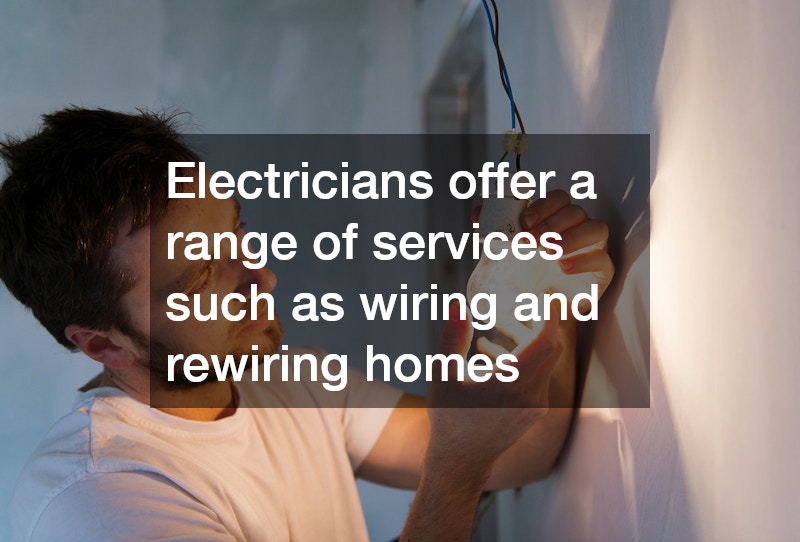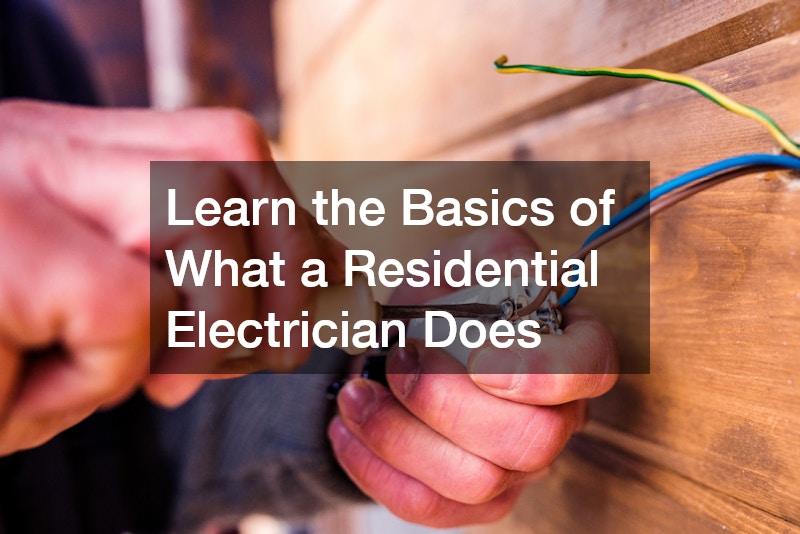A residential electrician provides many services to homeowners. Understanding their role can help homeowners appreciate the complexity and importance of electrical work within their homes. Realizing when and how to engage a professional electrician can greatly enhance both the safety and efficiency of residential electrical systems.
The Main Responsibilities
Residential electricians are tasked with a variety of duties, which include installing, maintaining, and repairing electrical systems in homes. Each of these responsibilities plays a crucial role in ensuring that homes are electrically sound and can safely support daily activities.
Moreover, they take on the added responsibility of ensuring all installations meet local electrical codes and safety regulations.
Part of their core duties involves troubleshooting electrical issues, which requires a keen understanding of both basic and advanced electrical principles. They are often called upon to diagnose problems, which may involve assessing the efficiency of existing systems or identifying faulty wiring. Addressing these areas effectively ensures a well-functioning electrical system that minimizes risks.
Additionally, residential electricians frequently engage in preventive maintenance, which is essential for prolonging the life of electrical systems. Through regular inspections and timely updates, they can help mitigate future problems that homeowners might face. This proactive approach bolsters the safety of the home and guarantees compliance with evolving electrical standards.
The Services Provided
Electricians offer a range of services such as wiring and rewiring homes, installing lighting fixtures, and upgrading electrical panels, among other tasks that enhance the safety and functionality of residential electrical systems. Each project may have its unique requirements, necessitating a tailored approach. Whether upgrading an entire home or addressing a specific issue, electricians are vital partners in ensuring safety and efficiency.
The installation of lighting fixtures can vary significantly, from simple bulbs to complex chandelier designs, showcasing the breadth of a residential electrician’s skill set. Their ability to understand electrical load capacities allows them to safely and efficiently customize lighting solutions that suit both aesthetic and practical needs. Proper installation not only enhances the ambiance of a home but also adheres to safety standards.
Furthermore, upgrading electrical panels is a crucial service that electricians provide, especially in older homes where outdated systems may be hazardous. An upgraded panel can support higher electrical loads and ensure a reliable power supply to modern appliances. This service emphasizes the importance of keeping electrical systems current as technology advances and energy demands evolve.
The Need for an Electrician
Signs that you may need to hire a residential electrician include frequent breaker trips, flickering lights, or any unusual electrical smells. Recognizing these indicators early can often prevent further complications down the line, such as electrical fires or system failures. Homeowners should be vigilant about these signs to maintain a safe living environment.
Other symptoms, such as warm or discolored outlets and the sound of buzzing or crackling from outlets, can also signal serious issues. Such warning signs are not something to be ignored; it’s essential to consult a residential electrician as soon as possible to address potential hazards. Taking these preventative measures can save you time, money, and the safety of your home.
Understanding when to reach out for professional help is vital for homeowners. If you have any doubts or concerns about your electrical system’s condition, it’s always better to be safe and call an expert. A residential electrician’s insights can help clarify your situation and ensure that you’re taking the right steps toward safety.
The Right Contractor for You
Choosing the right electrician involves checking credentials, reading reviews, and obtaining multiple quotes. Starting with a solid recommendation from friends, family, or online platforms can often steer you in the right direction. Personal experiences shared by others can provide insights into the reliability and professionalism of electricians in your area.
Once you’ve compiled a list of potential electricians, reviewing their credentials is crucial. This includes ensuring they have the necessary licenses and insurance to perform the work safely and legally. Asking about their experience with similar projects is also valuable; an electrician well-versed in your specific needs will be able to provide tailored solutions.
It’s advantageous to obtain multiple quotes before making a decision. This practice not only helps you compare pricing but also gives you an opportunity to gauge the professionalism and communication style of each electrician. Ultimately, choosing the right residential electrician comes down to ensuring they align with your project’s requirements and your personal comfort level.
Understanding what a residential electrician does is crucial for any homeowner. By being aware of their roles and knowing when to seek their expertise, you can ensure that your home’s electrical systems remain safe and efficient. Engaging qualified electricians fosters not only a secure environment but also enhances the functionality of your home’s electrical framework.
Staying informed about possible electrical issues and the qualifications necessary for electricians is key to maintaining your home. Emphasizing safety and quality when choosing a service provider will lead to better residential electrical systems in the long run. Consider hiring a professional whenever necessary to protect both your property and the well-being of those who live in it.




